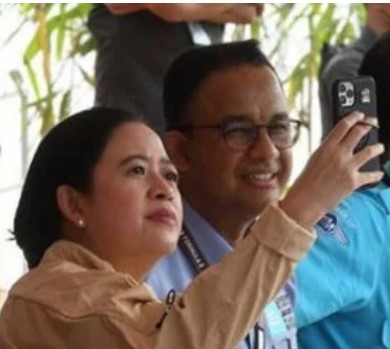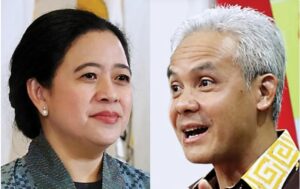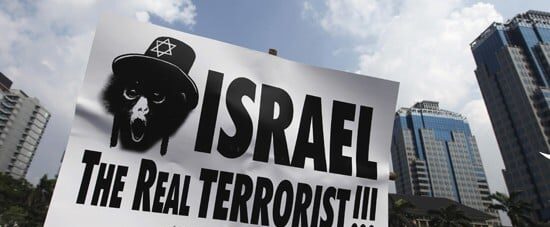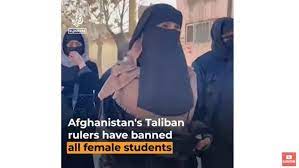
Puan Maharani-Anies Rasyid Baswedan
STRATEGIC ASSESSMENT. At the Hanura Party’s 16th anniversary, President Jokowi denied allegations that his administration was involved in the registration, verification, and determination of political parties participating in the 2024 elections.

Jokowi emphasized that his administration or himself had no involvement in whether or not political parties qualified to run in the elections. Jokowi also said that the General Election Commission (KPU) is a self-governing body that cannot be influenced by anyone, including the government.
Meanwhile, Deputy Chief of the House Commission II Syamsurizal has appealed to regional governments and regional general election commissions (KPUs) to re-register voters ahead of the 2024 general elections. “Since the data of voters always changes, (they) need to update the data, including in West Kalimantan Province,” Syamsurizal noted during a working visit.

According to Syamsurizal, updating population data is very important since several voters change their electoral district and had died before the elections. In addition, several citizens, who are currently aged 17 years, and retired police and military members, with the right to vote, have not been registered as voters.
Recent allegations of data manipulation during the factual verification of political parties aspiring to contest the 2024 legislative elections have clouded hopes of a free and fair practice of democracy. A number of civil society organizations found that cheating took place in several regions, including South Sulawesi, North Sulawesi, East Nusa Tenggara (NTT), East Java, Bali, Central Kalimantan and Aceh.
The factual verification stage conducted by the General Elections Commission (KPU) determines whether or not political parties that are currently not represented in the legislature are eligible to run in the elections. To be able to nominate candidates for the 2024 election, these parties must meet the requirements set by the commission.
Political parties that initially failed but eventually passed the verification include newcomers the Gelora Party, the Nusantara Awakening Party (PKN) and the Garuda Party. Altogether 17 parties qualify for the Feb. 14, 2024 elections, most are old faces that competed in 2019. The Gelora Party, the PKN and the Labor Party will make their debut in 2024.

President Jokowi ordered the Election Supervisory Body (Bawaslu) to oversee the preparation of the final voter list for the 2024 elections at the 2022 Bawaslu National Consolidation Meeting. Jokowi warned that the voter list is a constant issue in elections and is critical because they involve public trust. He also said that if certain parties refused to cooperate, Bawaslu could report directly to the President.
President Jokowi has asked Bawaslu to strengthen public participation in overseeing and preventing money politics during the 2024 election process. He also ordered the agency to intensify political education and literacy to ensure a quality general election with integrity and without money politics. He asked Bawaslu to strengthen the rules against money politics.
The Election Supervisory Body (Bawaslu) met with the Religion Ministry to discuss the dynamics of political development, particularly the phenomenon of a large number of places of worship being used as political campaign venues. Bawaslu member Totok Hariyono emphasized that the Religion Ministry, along with related parties, will attempt to penetrate politics in order to prevent places of worship from being used as a venue for practical political interests.

Bawaslu urged former Jakarta governor Anies Baswedan not to engage in dissemination activities that lead to campaign activities at mosques. The supervisory body made the appeal after meeting with Religion Minister Yaqut Cholil Qoumas, and after receiving reports that Anies received a petition for support for the 2024 presidential election at the Baiturrahman Great Mosque in Aceh on Dec. 2.
The Election Supervisory Body (Bawaslu) announced the 2024 Election Vulnerability Index (IKP) with five provinces having the highest level of vulnerability in holding the 2024 elections: Jakarta (with the rate of 88.95), North Sulawesi (87.48), North Maluku (84.86), West Java (77.04), and East Kalimantan (77.04).
Bawaslu Chair Rahmat Bagja said the index could be interpreted as an early warning system for all problems in the 2024 general and regional elections. He listed these issues as fighting among elites, the possibility of riots, low public participation, and geographical constraints.

Indonesia needs to watch out for spiraling identity politics as the 2024 general election nears, National Resilience Institute (Lemhannas) Governor Andi Widjajanto warned. Andi said the three biggest challenges in Indonesia’s political escalations for 2023 and 2024 are identity politics, misinformation and hoaxes, as well as hate speech related to identity politics.
According to a recent Poltracking Indonesia survey, the electability of NasDem Party presidential candidate Anies Baswedan excelled in three of the five provinces surveyed from Nov. 26 to Dec. 2. The three provinces are Jakarta, with an electability rate of 49.6 percent, West Java 36.3 percent, and Banten 47.6 percent.

Poll-leading presidential hopeful Ganjar Pranowo is performing strongly in areas where President Jokowi has won in past elections, while former Jakarta Governor Anies Baswedan begins to erode the support for two-time candidate Prabowo Subianto, according to a poll released on Thursday.
The new poll, conducted by Charta Politika Indonesia, indicated that Ganjar remains the most-favorite candidate in a hypothetical race of the three contenders by winning 31.7 percent of support. Anies trails in second with 23.9 percent of support while Prabowo gets 23 percent.
One of political activist has responded that survey results does not reflects the pure political aspiration from the public, because being admitted nor not, many of survey institute has political affiliation with certain political power groups or political party and there is many possibility chances if survey institute have political agenda in 2024 general elections.







